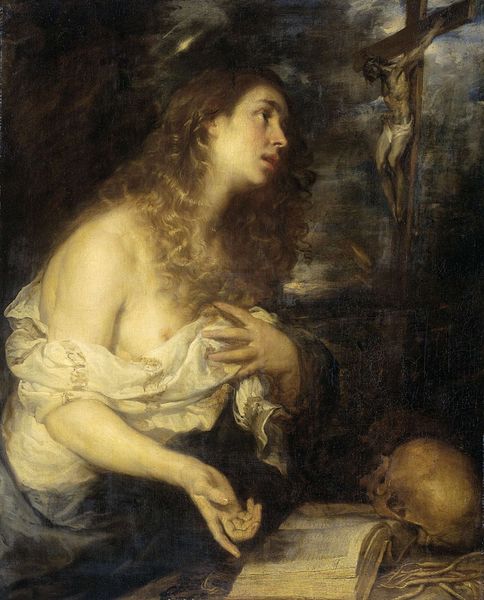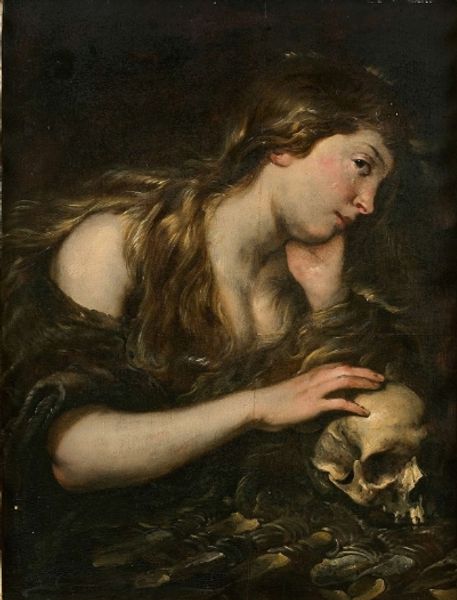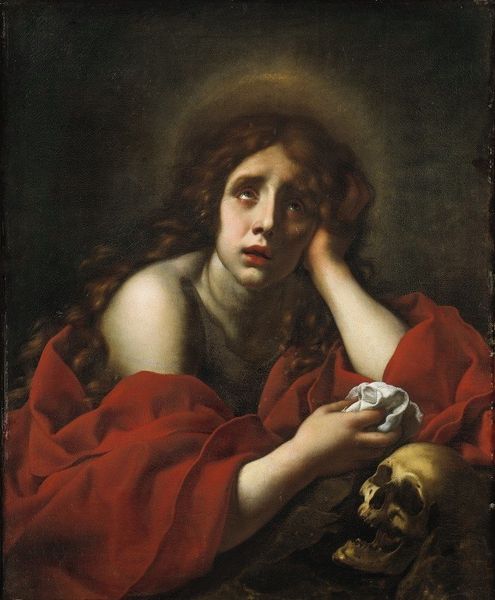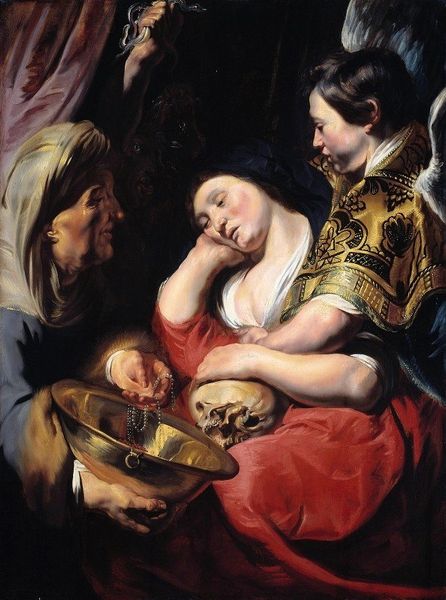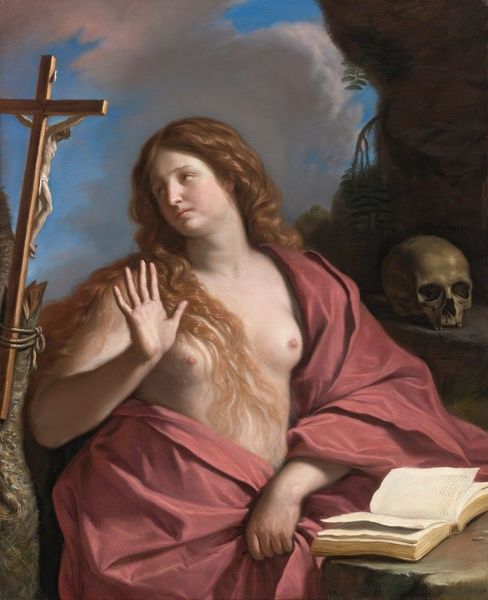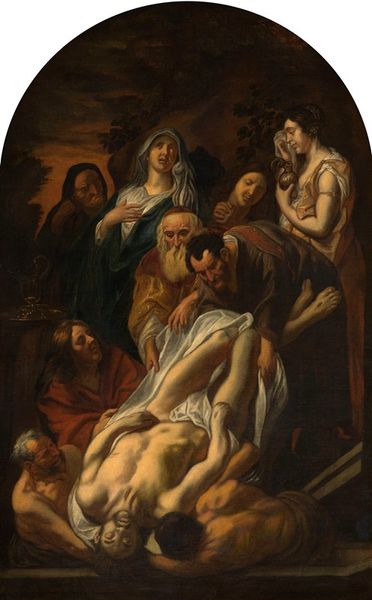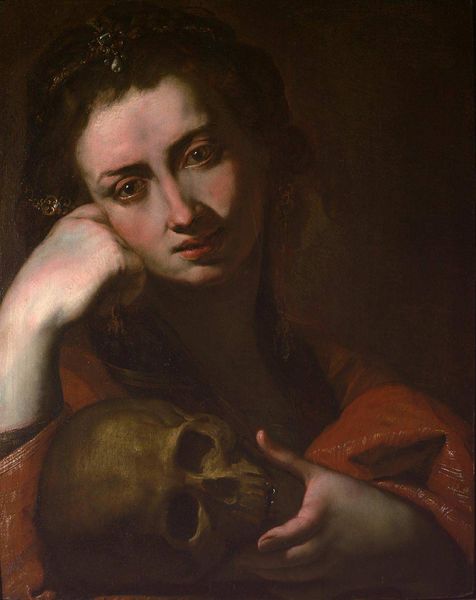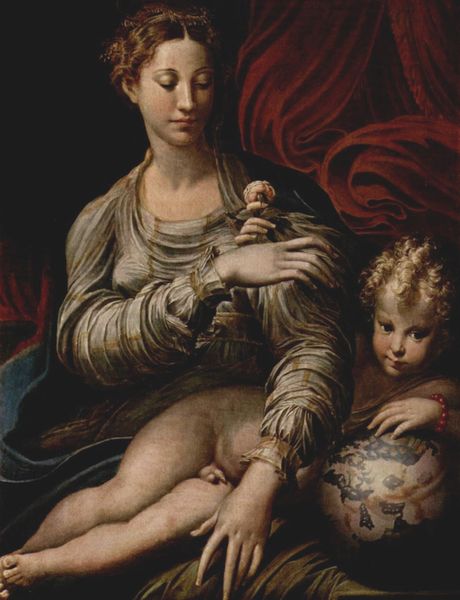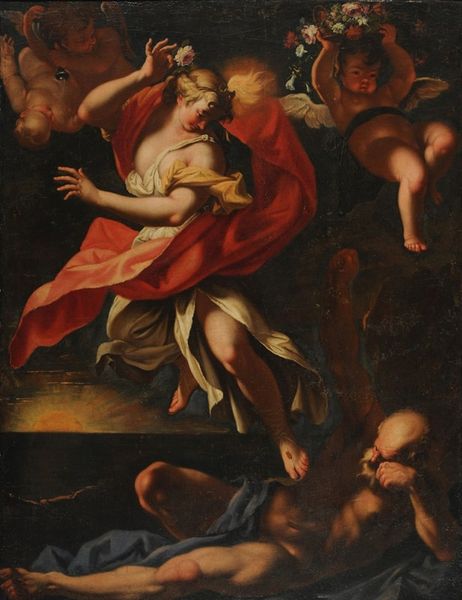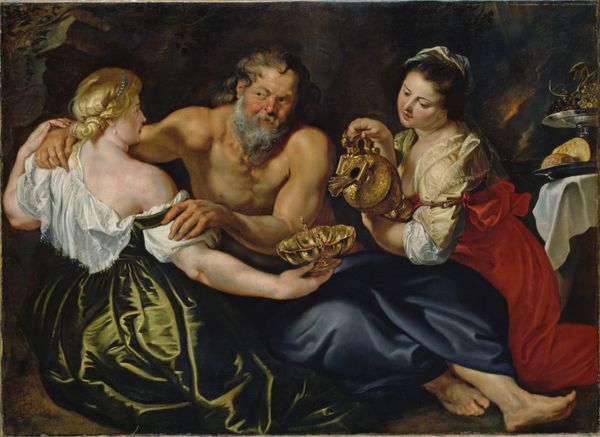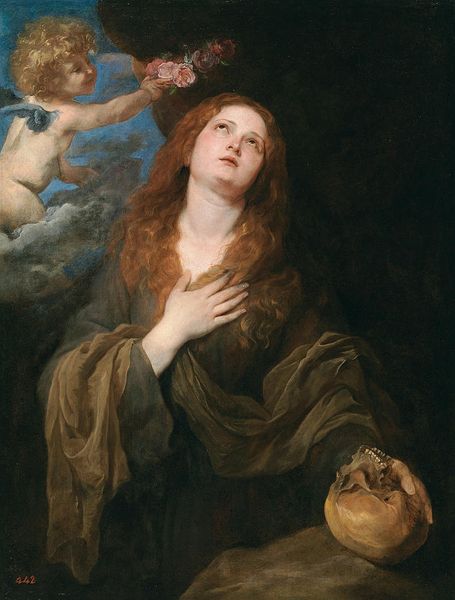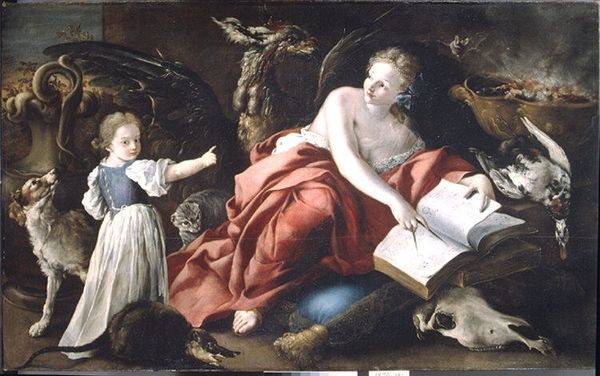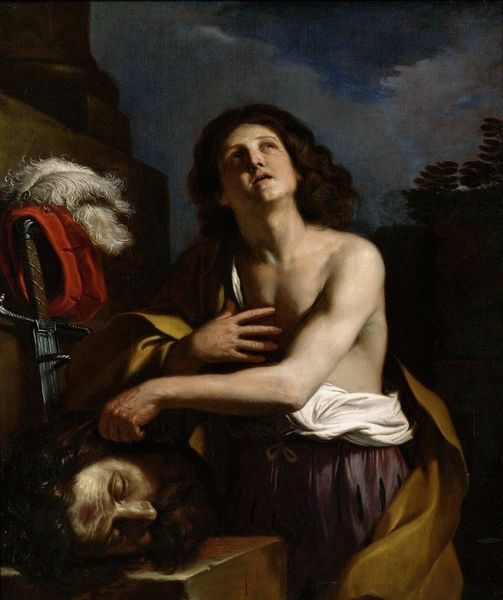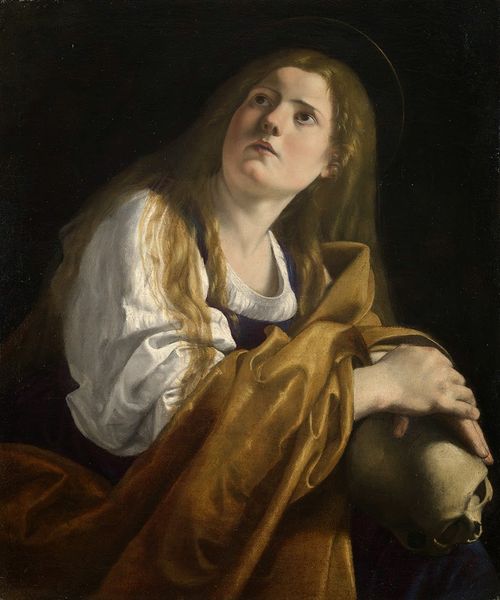
painting, oil-paint
#
portrait
#
allegory
#
baroque
#
painting
#
oil-paint
#
vanitas
#
chiaroscuro
#
history-painting
#
nude
Dimensions: 96 x 75 cm
Copyright: Public domain
Editor: Sebastiano Conca's painting, "The Penitent Mary Magdalene", employs oil on canvas to render a scene that is both captivating and melancholic. The intense chiaroscuro lends the scene a theatrical, dramatic effect, wouldn’t you agree? How might the historical context surrounding this work influence our reading of the central figure? Curator: Indeed. The potent contrasts serve a clear propagandistic role. Consider the Council of Trent's emphasis on art as a didactic tool, specifically to encourage devotion and repentance. A figure like Mary Magdalene, framed as a beautiful yet contrite sinner, offered a powerful message to viewers in post-Reformation Europe, reminding them of the Church's power of redemption. Editor: So, it's not just about religious devotion; it's also about reinforcing institutional power. Is there a political dimension here? Curator: Absolutely. The patronage system of the Baroque era meant artists like Conca often worked for powerful families and the Church. The "Penitent Magdalene," repeated in countless variations, reinforced ideal behavior but also, perhaps subtly, underscored the viewer’s own fallibility, positioning the Church as mediator. What do you make of the skull, the book, and the cross as symbols within this power structure? Editor: I see. The skull is a stark reminder of mortality, prompting reflection. The book perhaps symbolizes both knowledge and religious texts, while the cross is clearly a signifier of faith. All of this invites contemplation about how socio-political institutions were involved with commissioning pieces such as these. Thank you for elucidating that! Curator: My pleasure. It’s always fruitful to consider how even the most ostensibly devotional art operates within broader systems of power and influence.
Comments
No comments
Be the first to comment and join the conversation on the ultimate creative platform.
